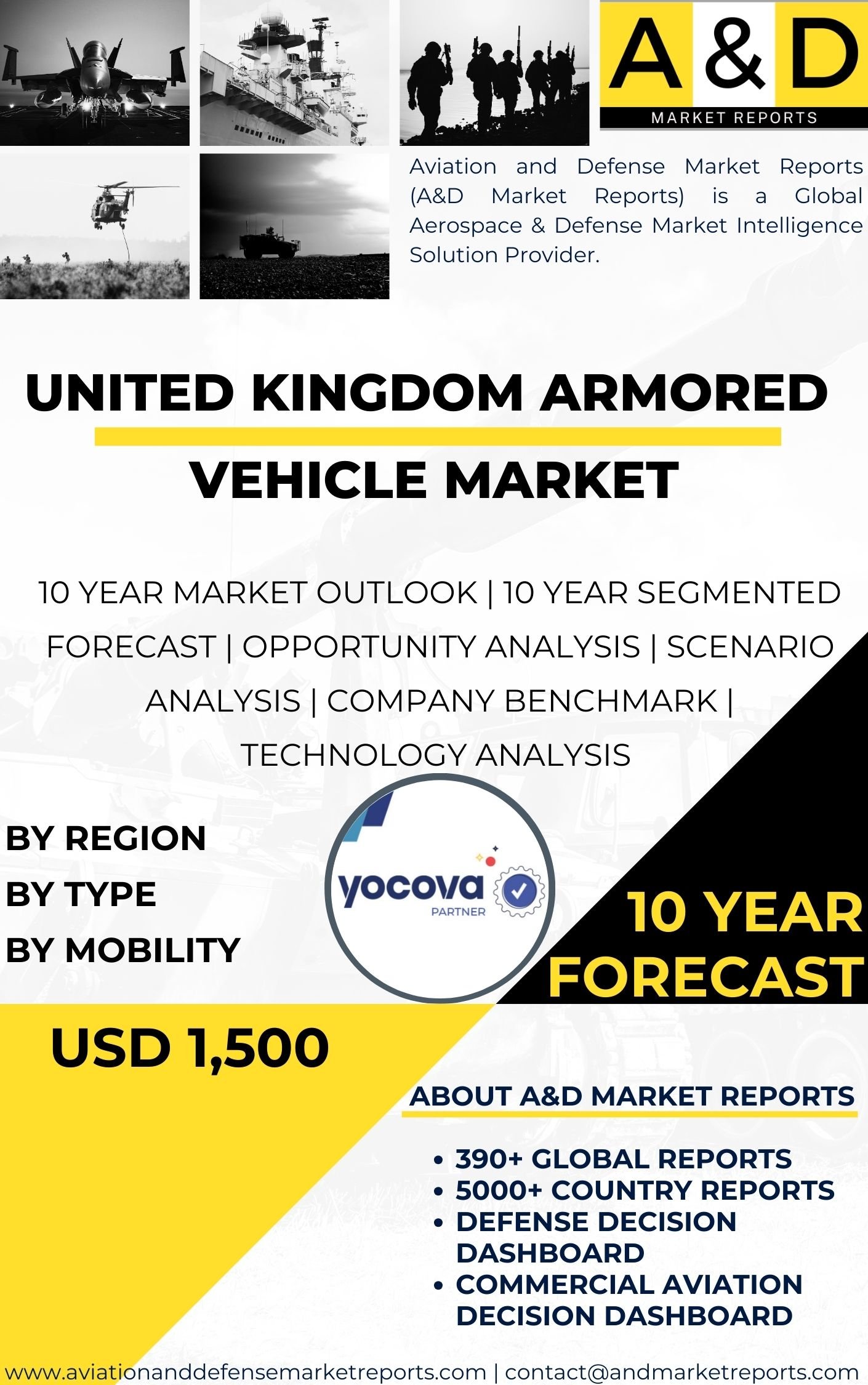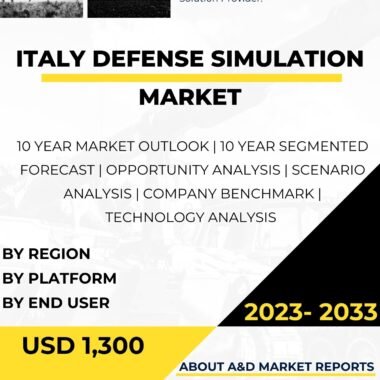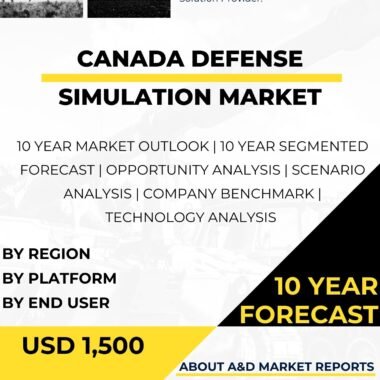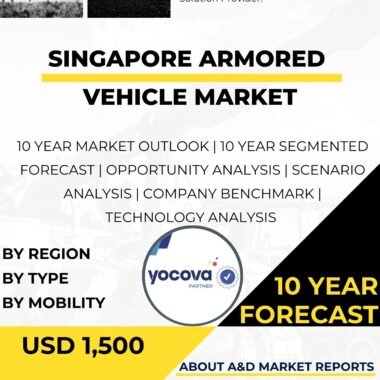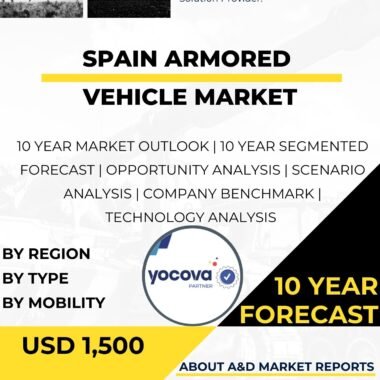Description
United Kingdom Armored Vehicle Market Overview
The United Kingdom Armored Vehicle Market is an essential part of the nation’s defense sector. Armored vehicles give the armed forces the ability to maneuver safely, protect troops, and project power on the battlefield. These vehicles offer mobility, firepower, and strong protection in many operational environments. The UK continues to invest in armored platforms to maintain a capable and adaptable land force.
Key Industry Players in the Armored Vehicle Market
The United Kingdom Armored Vehicle Market includes both domestic producers and international suppliers. British companies such as BAE Systems Land & Armaments and General Dynamics UK play major roles in designing and manufacturing modern armored platforms. Their engineering expertise and advanced materials support the creation of vehicles suited to the UK’s mission needs. International purchases also help expand the fleet and add diverse capabilities.
Major Platforms in the United Kingdom Armored Vehicle Market
Challenger 2 and Main Battle Tank Capabilities
A signature platform in the United Kingdom Armored Vehicle Market is the Challenger 2 main battle tank. Built by BAE Systems, it carries a 120mm rifled gun, advanced fire-control systems, and heavy armor. These features give it strong firepower and high battlefield survivability.
Imported Armored Platforms
The UK also acquires armored vehicles from overseas partners. These purchases may come through government agreements or commercial contracts. Imported systems help strengthen the fleet and support missions requiring specific types of vehicles.
Innovation and Upgrades in the Armored Vehicle Market
Continuous improvement is a major part of the United Kingdom Armored Vehicle Market. As threats evolve, the UK focuses on research and development to improve mobility, protection, and weapon systems. This commitment ensures that armored platforms remain effective in modern conflict scenarios. Upgrades also help extend service life and reduce long-term costs.
Training and Preparedness for Armored Vehicle Operations
The UK Armed Forces conduct intensive training to ensure units can operate armored vehicles confidently. Troops receive specialized education in driving, maintenance, targeting systems, and battlefield tactics. Training simulations help soldiers prepare for real missions and develop the skills needed for different environments and terrains.
Exports in the United Kingdom Armored Vehicle Market
The UK also exports armored vehicles to allied nations. These exports strengthen defense partnerships and support the UK’s own industrial base. Export success contributes to national security goals while helping partner nations improve their land warfare capabilities.
Operational Use of Armored Vehicles Beyond Warfare
Armored vehicles serve multiple roles outside traditional combat. The UK uses them in peacekeeping operations, stability missions, and humanitarian support tasks. Their strong protection allows personnel to operate safely in conflict-prone areas and provide assistance during crises.
Challenges in the United Kingdom Armored Vehicle Market
The development and maintenance of armored vehicles require significant financial resources. Balancing costs with capability needs remains a constant challenge. Rapid technological change also creates pressure to upgrade systems frequently. Cybersecurity risks and the need to protect critical technology further increase the complexity of managing the armored fleet.
Conclusion: Strengthening the UK’s Armored Vehicle Capabilities
The United Kingdom Armored Vehicle Market is a central pillar of the country’s defense strategy. Through domestic manufacturing, international cooperation, innovation, and continuous training, the UK maintains a modern and effective armored fleet. These vehicles protect British forces, support international missions, and help the UK play a key role in global security operations.
